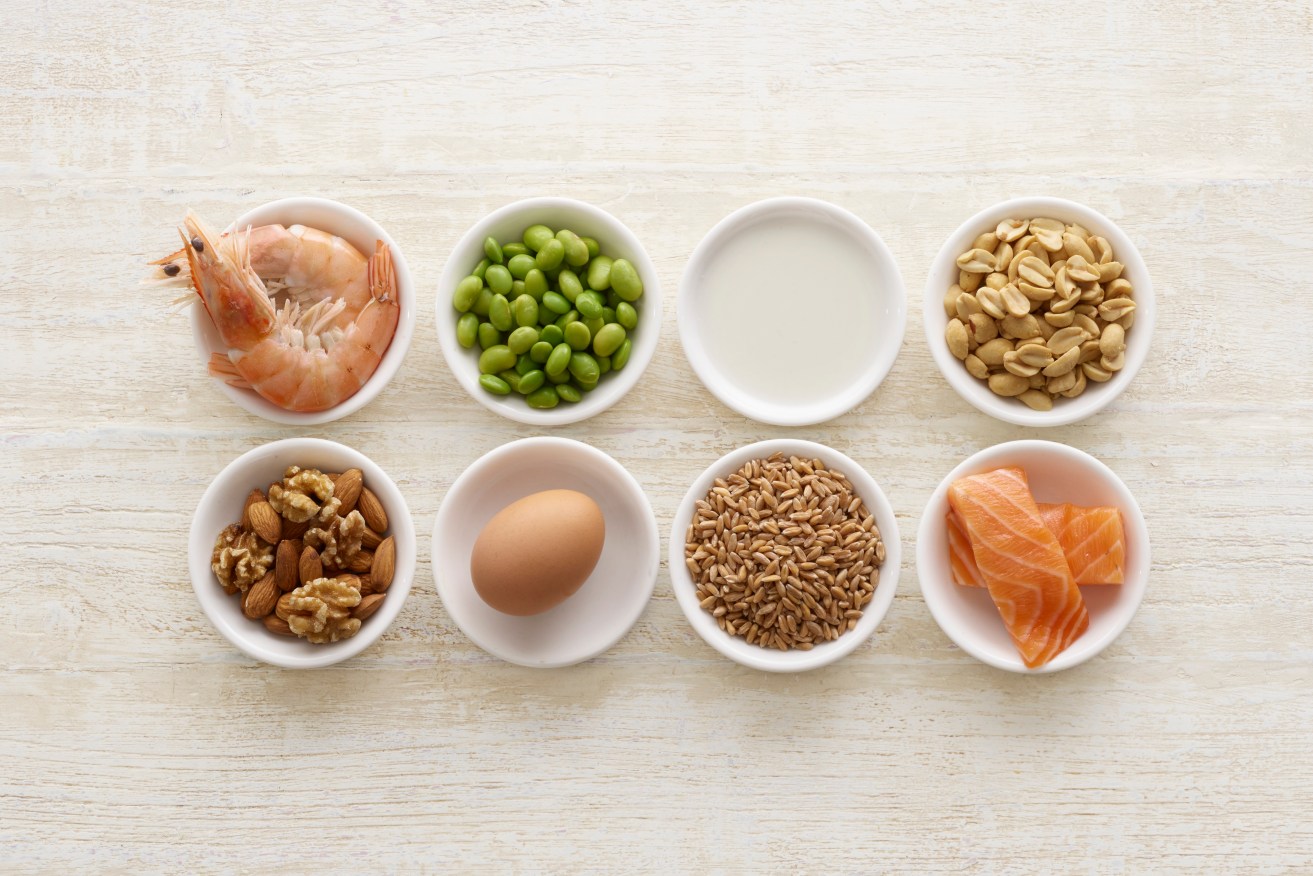A vaccine against food allergies? The US has approved one


The lives of children with multiple food allergies could be made safer with a new drug. Photo: Getty
A new study from Stanford University suggests a vaccine for dangerous food allergies in children may already exist.
Researchers found that “regular use of the drug, omalizumab, could protect people from severe allergic responses, such as difficulty breathing, if they accidentally eat a small amount of a food they are allergic to”.
So, if your allergy-vulnerable child happened to eat, say, a tiny piece of peanut, they’d be protected against anaphylaxis. This is where the throat swells, the child can’t breathe, and is at risk of dying without intervention.
It appears the drug is effective in children with multiple food allergies.
Based on the data, the US Food and Drug Administration (FDA) approved omalizumab “for reducing risk of allergic reactions to foods” in children as young as one.
Under the brand name Xolair, the drug was already approved in the US – and Australia – for treatment of severe allergic asthma.
How the drug works
Omalizumab is an injected antibody that binds and deactivates all types of immunoglobin E, or IgE, the allergy-causing molecule in the blood and on the body’s immune cells.
So far, the researchers say, “omalizumab appears able to provide relief from multiple food allergens at once”.
Dr Sharon Chinthrajah is associate professor of medicine and of pediatrics, and the acting director of the Sean N. Parker Centre for Allergy and Asthma Research at Stanford Medicine. She’s also the study’s senior author.
“There is a real need for treatment that goes beyond vigilance and offers choices for our food allergic patients,” Chinthrajah said. “We think (omalizumab) should have the same impact, regardless of what food it is.”
The new study
The study included 177 children and babies. All participants were severely allergic to peanuts and at least two other foods.
The participants were studied in three groups: 38 per cent were aged one to five years old; 37 per cent were six to 11 years old, and 24 per cent were 12 years or older.
Two-thirds of the participants were randomly assigned to receive omalizumab injections, and one-third received an injected placebo.
The injections took place over 16 weeks, and were given once every two or four weeks, depending on the dose needed.
The participants were re-tested between weeks 16 and 20 to see how much of each allergy-triggering food they could safely tolerate.
Upon re-testing it was found that:
- The 79 patients (66.9 per cent) who had taken omalizumab could tolerate at least 600mg of peanut protein, the amount in two or three peanuts, compared with only four patients (6.8 per cent) who had the placebo
- Similar proportions of patients showed improvement in their reactions to the other foods in the study
- About 80 per cent of patients taking omalizumab were able to consume small amounts of at least one allergy-triggering food without inducing an allergenic reaction
- There were 69 per cent of patients who could consume small amounts of two allergenic foods
- And 47 per cent could eat small amounts of all three allergenic foods.
Unanswered questions
The study found that omalizumab was safe. It didn’t cause side-effects, other than some minor reactions at the site of injection.
This study marks the first time its safety has been assessed in children as young as one.
However, the manufacturer advises that anaphylaxis “can happen” when you receive Xolair. This appears to be very rare.
In the “best available treatment” for food allergies, oral immunotherapy, patients ingest tiny, gradually increasing doses of allergy-triggering foods under a doctor’s supervision to build tolerance.
However, oral immunotherapy can also trigger allergic responses.
“We have a lot of unanswered questions,” Chinthrajah said. “How long do patients need to take this drug? Have we permanently changed the immune system? What factors predict which people will have the strongest response? We don’t know yet.”








